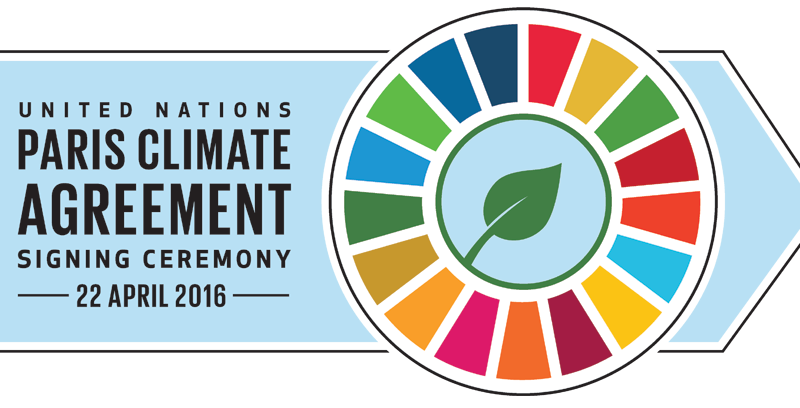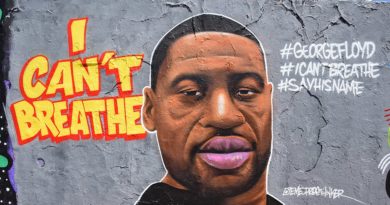Naso 5777 – The Paris Agreement on Climate Change
Even some of my supporters have told me, “Rabbi, I come to shul to relax on Shabbat. I don’t want to hear things that are political, that are contentious. I get enough of that during the week.”
We just celebrated Shavuot. Shavuot is the holiday when we celebrate receiving the Torah. But what is it that we received?
Torah means “instruction.” Torah is more than a spiritual guide. Torah is not just about keeping kosher and honoring the Sabbath. For a Jew, Torah is life’s instruction manual. It’s there to guide us on the proper path. It’s there to teach us not only how to be a Jew, but how to be a mensch.
The Haftorah we read on Yom Kippur from the prophet Isaiah tells us that the moral commandments are more important than the ritual commandments. The people desire to be close to God. They ask God, “Haven’t you seen us fasting?” God’s response, by way of Isaiah, is harsh:
Is such the fast I desire, A day for men to starve their bodies? Is it bowing the head like a bulrush And lying in sackcloth and ashes? Do you call that a fast, A day when the LORD is favorable? No, this is the fast I desire: To unlock fetters of wickedness, And untie the cords of the yoke To let the oppressed go free; To break off every yoke. It is to share your bread with the hungry, And to take the wretched poor into your home; When you see the naked, to clothe him, And not to ignore your own kin.
So I’m providing a “trigger warning.” I’m going to talk about a moral issue today. It may make some of you uncomfortable. But I believe as a rabbi it’s my job to speak out on moral issues, even if it makes people uncomfortable. Sometimes I have to tell people what they need to hear, not what they want to hear. I’m sure during the Civil War and during the civil rights era there were also congregants who didn’t want to hear “political stuff” on Shabbos. And I’m sure there are rabbis who spoke out anyway.
I’m going to talk about the Jewish values that relate to President Trump’s decision to withdraw from the Paris Agreement. A decision which I believe is immoral and contrary to Jewish values. If you don’t want your Shabbat peace disturbed by this issue, I understand, and I won’t be offended if you choose to excuse yourself and go to the Reading Room for the next 20 minutes or so. Anyone who wishes to should feel free to do that, now.
Now, I’m not naïve enough to think that this sermon is going to change anyone’s mind. That’s not likely. Anyone who thinks climate change is a Chinese hoax, or that it’s real but it’s not anthropogenic (caused by people) is not going to be swayed by my words.
If that’s the case, why talk about it all? Why preach to the choir?
Because it’s an important issue that we all need to do something about. And as Jews, when you think about this issue it’s good to think about it in a “Torah context,” to understand the ways in which Torah informs this issue.
In his announcement that the US was withdrawing from the Paris Accord, Trump said jobs were his biggest concern, citing a very negative report that claims the US could lose up to 2.7 million jobs by 2025. But that figure is disputed. A report on Fox Business – FOX – said leaving the Accord could negatively affect small businesses in the US. In an interview with Fox, David Crane, former CEO of NRG Energy, a $15 billion/year sales energy company, said that there are 500,000 jobs in renewable energy in America – many of them in family owned businesses. Those jobs are jeopardized by backing down on efforts to control climate change. Crane doesn’t even think the change will benefit the coal industry, as claimed by President Trump – he said, “I don’t think this is a job creator at all, I think this is a job destroyer.” Coal has problems far beyond environmental regulations – other sources of energy have become cheaper, including natural gas. Solar and wind power are now becoming very competitive with coal economically even without subsidies.
Job creation is indeed a very important Jewish value. Rambam, Maimonides, our great 12th century rabbi, said the greatest level of charity is to help someone get a job so that he’s no longer dependent on others. Rambam also taught that it’s OK to prioritize the poor of your town over the poor of other towns, so the president’s “America First” policy has support in Torah values.
On the other hand, there are a lot of Torah values that push us to make a very big effort to slow down climate change.
A US government website – NASA’s climate page – states:
Global climate change has already had observable effects on the environment. Glaciers have shrunk, ice on rivers and lakes is breaking up earlier, plant and animal ranges have shifted and trees are flowering sooner.
Effects that scientists had predicted in the past would result from global climate change are now occurring: loss of sea ice, accelerated sea level rise and longer, more intense heat waves.
Over 100 million people live within three feet of sea level – tens of millions of people could be displaced by the end of this century as coastal areas become inundated with water.
It’s happening already, and it’s happening in America. Last year residents of Isle de Jean Charles, Louisiana became the nation’s first “climate refugees.” The island is slowly going underwater because of climate change. The federal government allocated $48 million to move the entire community to higher ground. That $48 million was part of $1 billion in grants from the Department of Housing and Urban Development to help communities around the US adapt to climate change. Most of the money goes for things like building dams, upgrading levees, and installing drainage systems.
Back in February we studied Jewish sources on protecting the environment, around the time of Tu b’Shevat. Jewish sources clearly call on us to protect the environment. I’ll give a very brief recap.
In the beginning of the Torah, God gives the planet to us, seemingly to do what we want with it:
And God said: ‘Let us make man in our image, after our likeness; and let them have dominion over the fish of the sea, and over the fowl of the air, and over the cattle, and over all the earth, and over every creeping thing that creepeth upon the earth.’
A couple of verses later, God blesses Adam and Eve, and tells them, “fill the earth and subdue it; and rule the fish of the sea, the birds of the sky, and all the living things that creep on earth.”
In his commentary, Nachmanides says “subdue it” means God gave them power and rulership over the earth, to do what we want with animals, to build, uproot, quarry copper from the hills, etc.
Which might sound like “cool, go destroy things, it’s yours to do what you want with it.” Except other verses put limits on our power. The Torah also says God took the man and put him in the Garden of Eden to till it and to guard. The medieval commentator Ibn Ezra says “to guard it, from all animals that would enter it to pollute it.” Presumably that includes man!
One of the most important things we can do to help the environment is to use less energy. Since anything we buy also uses energy in its production and distribution, consuming less stuff also helps the environment, and this is very much a Jewish value.
The Torah tells us that when we besiege a city in a time of war, we are not to destroy fruit-bearing trees to build our walls and defenses. “Is the tree of the field man, that it should be besieged by you?” The rabbis extended this concept of avoiding gratuitous destruction, called bal taschit, to specifically include wasting energy – causing a lamp to burn more oil than needed just for light.
In the Amidah, our central prayer, we call God koneh hakol, which the siddur translates as “creator of all.” But a better translation is “owner of all.” Koneh comes from the Hebrew verb liknot, which means “to buy.” The world is God’s – She just lets us use it. Regarding this law of bal tashchit, Lawrence Kahn Troster wrote,
The underlying idea of this law is the recognition that everything we own belongs to God. When we consume in a wasteful manner, we damage Creation and violate our mandate to use Creation only for our legitimate benefit.
But the real bottom line on Judaism and the environment is a teaching found in the Midrash:
When the Holy One, Blessed be He, created the first human He took him and showed him all the trees of the Garden of Eden and said to him ‘See My works, how beautiful and praiseworthy they are. And everything that I created, I created it for you. Be careful not to spoil or destroy My world – for if you do, there will be nobody after you to repair it.’
One of President Trump’s objections to the Paris Accord is the $100 billion “Green Climate Fund,” which sends money from the developed countries to developing countries to help them cope with climate change.
This is only just. For example, the nation of Kiribati is a collection of coral reefs and atolls, scattered across an Alaska-sized chunk of the Pacific Ocean that straddles the equator. The entire country is within six feet of sea level, and it’s threatened with complete destruction. The United States is responsible for about 1/3 of the greenhouse gases in the atmosphere that are causing the heating that is threatening the homes of the 110,000 citizens of Kiribati. Don’t we bear some responsibility for helping them adapt or move?
Climate change is an inter-generational problem. The actions we take – or fail to take – today will have a more profound impact on our children and grandchildren than it has on us. If we fail to take action on climate change today because of the cost, all we are doing is kicking the can down the road, to future generations. And the old adage about “an ounce of prevention is worth a pound of cure” is equally true when it comes to the environment. Slowing down climate change is expensive. Dealing with the consequences of not slowing down climate change – consequences that could include spending billions of dollars on levees and other systems to keep the ocean out of coastal cities – is even more expensive.
There’s a familiar story in the Talmud about an old man planting a carob tree, which takes 70 years to bear fruit. A passerby asks, “Why are you planting that tree old man? Do you think you’ll enjoy the fruit.” He replies, “Just as there were carob trees for me when I came into this world, so I’m planting for future generations.” We’re supposed to take care of future generations – we’re certainly not supposed to harm future generations.
This week’s Torah portion, Naso, tell us:
When a man or woman commits any wrong toward a fellow man, thus breaking faith with the LORD, and that person realizes his guilt he shall confess the wrong that he has done. He shall make restitution in the principal amount and add one-fifth to it, giving it to him whom he has wronged.
If we wrong future generations there is no way we can make restitution. We carry our sins to the grave with us.
But what can we do? We’re not the decision makers in Washington.
We can let the decision makers in Washington know how we feel. We can make protection for the environment one of the issues we consider when we vote for a candidate for office. We can encourage our city and our state to join the cities and states, including California, New York, and Washington, that have pledged they are going to continue to abide by the actions called for by the Paris Accord.
And we don’t have to wait for the government to do things that will help slow down climate change. We can reduce our consumption where possible. We can buy energy efficient light bulbs. We can buy fuel efficient cars and trucks, even if gas is cheap. We can sign up with alternative power companies, such as Arcadia Power (available in all 50 states) that will source your electricity from renewable sources.
In his announcement, Trump said:
Even if the Paris Agreement were implemented in full, with total compliance from all nations, it is estimated it would only produce a two-tenths of one degree — think of that; this much — Celsius reduction in global temperature by the year 2100.
It’s true that 2/10 of a degree isn’t enough – but that’s incremental savings, on top of what would have been expected if the previous climate agreement, Copenhagen, were extended. So the actual impact of the Paris Agreement is much greater than that, because it includes extending previous agreements.
But whether as a nation, or as individuals, we each have to do what we can to help combat climate change. As it says in Pirkei Avot, “You are not obligated to complete the work, but neither are you free to desist from it.”
Shabbat Shalom




